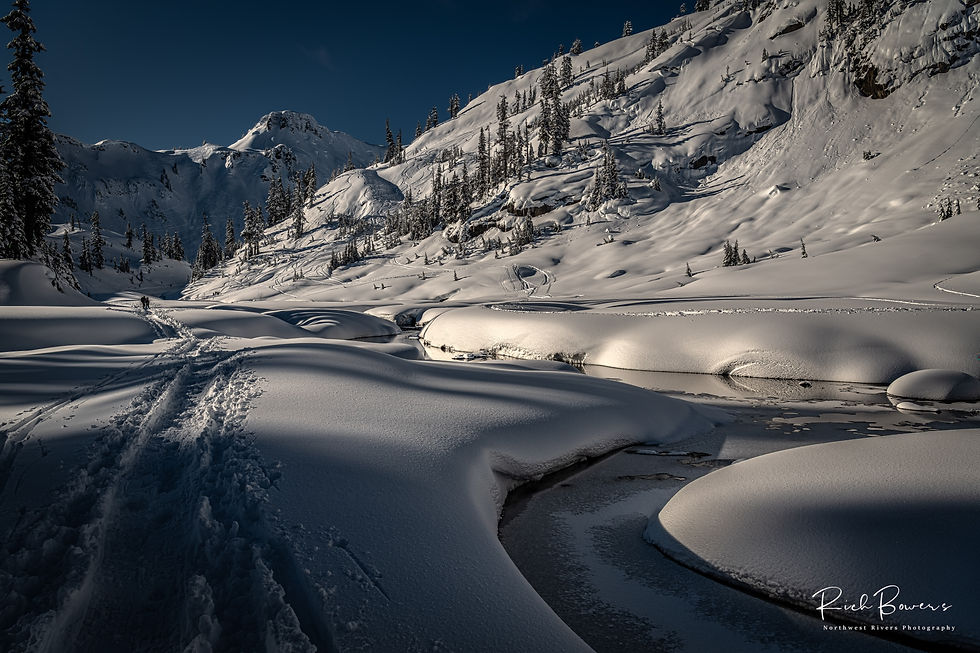Trip of a Lifetime!
- nwriversphotograph
- Mar 5, 2021
- 3 min read
What a difference two weeks can make. In my last posting I was talking about the snow, rain, and greyness of the Pacific Northwest. Today, spring has begun to arrive with budding trees, blooming daffodils and just the hint of the start of hay fever (still raining of course). To celebrate the approach of longer daylight and maybe warmer temperatures, I thought we would go somewhere different, far, far away from Washington, British Columbia, and Alaska. An early pre-pandemic year, a different hemisphere, and a different season.

Most often, I plan the trips for my family and me. In 2014, my wife Stephanie decided she was done with the hard-core, dirt-bag approach to vacation and alerted me that she would set this agenda and that she wanted to go to the island nation of Fiji. It was a good plan, as our daughter was schooling abroad, and meeting in Fiji was more economical (and fun) than bringing her home, and we could indulge in our interest in diving, snorkeling and our combined love of water.
For someone who sleeps in his truck or spends $100 a week on a river trip, my immediate thought was ‘this will cost a fortune.’ It turned out to be the trip of a lifetime, and now when Stephanie has a plan, I just enjoy the moment, go along, and set my expectations on high.

We flew direct from Bellingham to Honolulu, spent the night, then flew into Fiji the next day. A better alternative than the 22+ hour flight down to California and then west. We landed at Nadi International Airport, collected ourselves, hooked up with our daughter, and then were off the next morning on an hour and a half flight to Matai Airport on the third-largest island, Taveuni. The garden island of Fiji, this island has more rain due to the orographic uplift on the western shore that dumps up to 33 feet of rain on the eastern side.

To say we fell in love with Taveuni would be a major understatement. Sunrise and sunset swimming at the tip of the Somosorus strait; the pineapple, mango, guava, and bananas available twenty-four hours a day; amazing black sand beaches; clear water; and the Fijian people. Did I mention the people? Warm, inviting, and wonderful. One of the best parts of our time there – evenings spent with them playing music and drinking Kava.

Booking off season, negotiating for all three of us to sleep in one small cabin, and pleading for any discount to be had, Steph was able to score a berth on the Tui Tai, a 140-foot power/sailboat that did not really sail anymore. Being on the water zoned us in daily to the clear water, tables overflowing with fresh fruit, and the native crew, their music and sharing “down” time with them.

We were able to dive among Fiji’s famous soft and hard coral reefs (three times a day) and visit some of the world’s most beautiful dive spots: the purple wall, the great white wall, Rainbow Reef, and the mostly uninhabited Ringgold Isles archipelago which boasts some of the worlds cleanest and bluest waters. The trip of a lifetime.
In 2016 Cyclone Winston damaged the Tui Tai and put it out of commission for good. While it no longer sails, it remains in Fiji, now a hotel and convention venue named the Serenity.
Doing Our Part It has been seven years since we visited Fiji. In those years, the coral reefs surrounding Fiji, like coral reefs everywhere, are being impacted by warming seas, acidification, and increasing storms. They are also impacted by pollution, overfishing and other human activities. From experience, I know that those who connect directly with the natural world, climbers, hikers, paddlers, and divers, are often those who are nature’s most ardent supporters. If you love the outdoors, or have always wanted to go somewhere special, learn about the culture, people, and environment before you go. Do not go as a tourist. Connect with the local community, support their needs, love their land as they do, and see it through their eyes.
“Why is it that scuba divers and surfers are some of the strongest advocates of ocean conservation? Because they've spent time in and around the ocean, and they've personally seen the beauty, the fragility, and even the degradation of our planet's blue heart.”
Sylvia Earle, “Her Deepness”
Marine Biologist, Explorer, the world's foremost Oceanographer





Comments